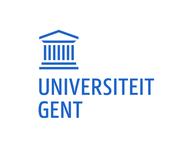BioChroma: Exploring the functional potential of bacterial pigments for innovative food and feed applications
Funding
Project summary
Color is one of the most important characteristics in the food sector, reflecting flavor, freshness, safety, and nutritional value. Traditionally, food colorings have been plant-based. However, starting from the 19th century, synthetic dyes gained popularity due to their competitive prices and high stability. Recently, there has been a trend to replace these synthetic dyes due to their potential links to allergenicity, toxicity, and carcinogenicity. The food industry is shifting towards more sustainable and natural alternatives, such as microbial pigments. Microbes are a cost-effective and scalable alternative for pigment production, offering reliability and independence from weather conditions compared to pigments derived from vegetables. Microbial pigments offer a wide array of natural functions, including antioxidants, antimicrobial, and anticancer activities, which are beneficial for human health, giving them an advantage over synthetic colorants. However, unlike synthetic dyes and plant pigments, microbial pigments have been poorly characterized, resulting in a high untapped potential for their characterization, production, and use. In BioChroma, we aim to expand the portfolio of microbial pigments for food and feed applications that can meet market and consumer needs while considering the potential environmental benefits and drawbacks. This will be accomplished by developing a comprehensive knowledge platform that explores the relationships between:
- Bacterial strains
- Genetic contexts
- Pigment structures
- Physicochemical properties
- Biological properties
- Process parameters
- Color behavior in food and feed formulations
- Application testing
- Impact assessment
Partners
UGent
-
Prof Anne Willems – Laboratory of Microbiology (We09)
-
Prof. Sven Mangelincxk – SynBioC research group (BW24)
-
Prof. Katleen Raes – Research Unit VEG-i-TEC (BW23)
-
Prof. Marjan De Mey – MEMO research group (BW25)
-
Prof Jo Dewulf – STEN (BW24)
-
Prof. Koen Dewettinck – FSF (BW23)
-
Prof. Mia Eeckhout – Unit Cereal and Animal Feed Technology (BW23)
-
Dr. Nele Ameloot – BioMolecules (IOF)
UAntwerpen
- Prof. Els Du Bois – ReuseLab
Duration
- Start: 1st October 2024
- End: 30st September 2028


